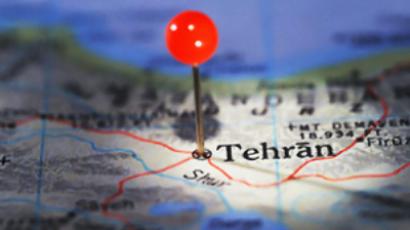Iran: 30 years of Islamic Republic
Thirty years ago a rapid and dramatic upheaval transformed Iran from a monarchy to a religious state. Three decades later, those who took part in the Iranian revolution still believe it was the right thing to do.
“We felt the tyranny of the Shah and his people. Our revolution was about justice and the triumph of the oppressed,” believes Akhmed Rushnfikr.
Almost overnight, the West’s most steadfast ally in the Muslim world became an enemy. The revolution
Iran's Islamic Revolution
The Islamic Revolution of Iran began in 1978 as a nationwide protestation lead by Islamic fundamentalists against the pro-American Shah, Muhammad Reza Pahlav, which ended up with the Shah’s overthrow in 1979. The religious leader of revolutionaries, an exiled Ayatollah Ruhollah Khomeini, abolished the Shah’s secular monarchy and established the Islamic Republic of Iran. From the very beginning the new republic rejected all Western influence and was solely guided by Shia Islamic teachings.
toppled the increasingly unpopular Shah, who was seen by many in the country as a US-backed puppet.
The Shah fled and in October 1979 was allowed into the US for cancer treatment. Islamic militants then seized 52 Americans in the US embassy in Tehran, demanding he be returned.
The hostage crisis lasted for 444 days and saw the US cut diplomatic ties with Iran. The crisis and the failed rescue attempt led to President Jimmy Carter’s defeat to Ronald Reagan, who won the release of the hostages on the day of his inauguration.
Years before the revolution, Washington had ensured the Shah stayed in power with a coup d'état against a popular prime minister, both to maintain Iran’s support in the Cold War and to protect its oil interests.
The revolution took Washington by surprise but its backing for the Shah provoked much of the popular anger.
The revolution was dominated by one man, Ayatollah Khomeini, who rose to prominence criticising the Shah’s secularism and ties with the US. He had been in exile – in Paris – from the country but was not forgotten.
In February 1979 after more than 14 years in exile Khomeini returned to Tehran aboard a French plane to a rapturous greeting by several million Iranians.
“I appoint a government with the support of these people,” Khomeini said in his greeting speech.
Imam Ruhollah Musavi Khomeini
(September 24, 1902 – June 3, 1989)Scholar, politician and the religious leader of Islamic Revolution in Iran was an Iranian religious leader who, following the revolution, became the country's Supreme Leader and remained the highest ranking political and religious authority of the nation until his death.
Soon after the revolution Iran was shaken by a different upheaval – the invasion of Saddam Hussein’s Iraqi army. Iran’s former ally now sided with its enemy. Seeing Iraq as a possible strategic partner and a counterweight to Iran, Washington sent money, intelligence and military help to the Iraqi regime it was later to topple. The war ended with an UN-brokered ceasefire but hostilities between Washington and Tehran continued.
In 2002, George Bush accused Iran of supporting terrorism and trying to develop nuclear weapons, but in the 1950s it was Washington that helped Tehran launch its nuclear programme.
Today Iran is building its first atomic power plant and insists its purposes are peaceful. But the United States has spearheaded UN decisions to impose sanctions over Iran's nuclear ambitions. Even the late Shah's son thinks the punishment is unjust.
“Why is the world so worried? It’s the same world that was rushing to sell us nuclear technology in the first place! And now the very same countries are imposing sanctions on us,” says Reza Pahlavi, heir to the throne of Iran.
Barac Obama is offering to open unconditional dialogue with Iran about its nuclear programme.
Thirty years after the revolution Washington is now ready to talk to its former friend, turned sworn enemy.














